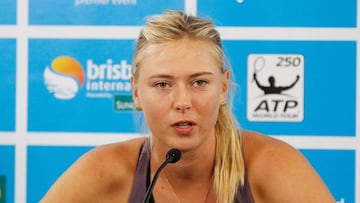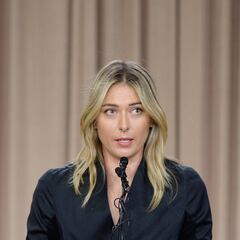Sharapova may not play again, says Russian federation chief
The five-times grand slam champion faces a possible ban of up to four years for failing a drugs test at the Australian Open in January.

Maria Sharapova may not play again after testing positive for the banned substance meldonium, the president of the Russian tennis federation was quoted as saying on Thursday.
Shamil Tarpishchev told the R-Sport news agency that Sharapova's situation was "bad".
The five-times grand slam champion faces a possible ban of up to four years for failing a drugs test at the Australian Open in January.
British media reported that she had been due to attend an International Tennis Federation (ITF) anti-doping hearing in London on Wednesday.
There has been no subsequent comment by the ITF.
Sharapova stunned the world in March when she said she had returned a positive test for the Latvian-made heart medication which was added to the World Anti-Doping Agency's (WADA's) banned list from Jan. 1.
The world's highest-paid sportswoman claimed to have been taking meldonium on doctor's orders for 10 years and had failed to note that it had become a banned substance until hearing of her failed test at the year's first grand slam.
Related stories
She was provisionally suspended on March 12 pending the hearing, and has lost a number of her lucrative sponsorship deals. She said at the time that she hoped she would be allowed to play again.
WADA said in April, after hundreds of athletes had tested positive for meldonium, that bans might be overturned due to a lack of clear scientific information on how long the drug takes to be excreted.

